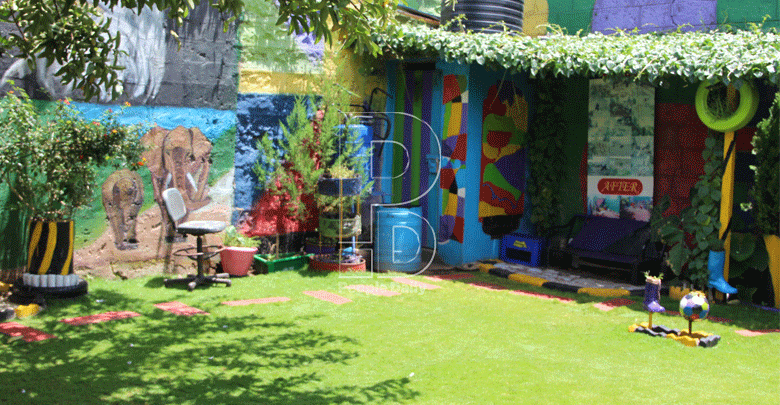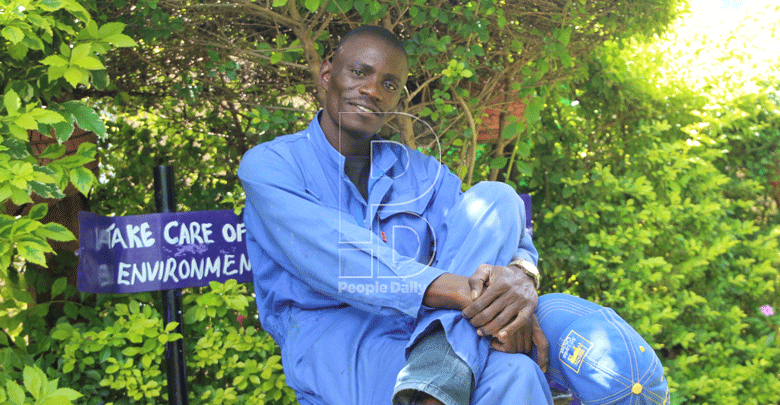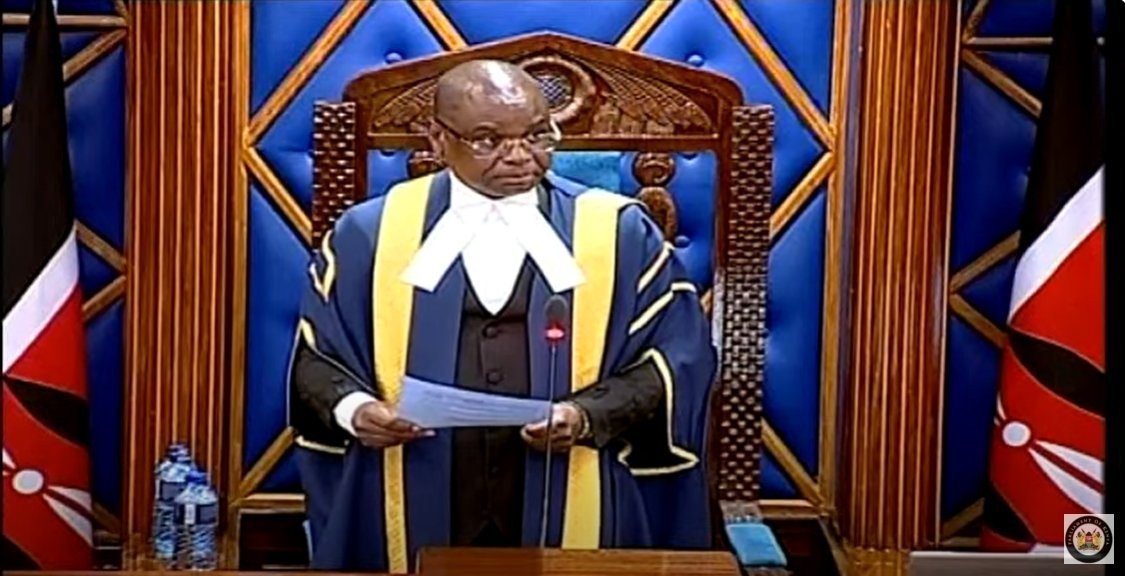From criminal to green spaces champion

Harriet James @harriet86jim
For ages, Dandora estate in Nairobi has made a name for itself as a den for criminals, characterised by high rates of crime, gangs and theft. It is also home to Nairobi’s main dumping ground that receives nearly 2,000 metric tonnes of waste every day from the 4.5 million residents who live in the capital.
The estate was established in 1977 to offer higher standards of living as a planned neighbourhood with public spaces. However, these public spaces have been grabbed and on them are either tall rental buildings or dump sites.
Against this background, Evans Otieno made it his mission to change the narrative. Born 30 years ago, he watched the area turn into a danger zone and admits the only role models he had were thieves.
His parents passed away in 1997 and his grandma, who had bought a plot in Dandora, raised him. Unfortunately, she too passed away after five years and Evans was forced to fend for himself and his younger sister.
“The only way to survive was getting involved in crime. I had no choice as those were the only role models we had in the area,” he narrates as he recalls watching his childhood friends get shot dead because of crime.
He has also been an almost victim of three mob justice, but was lucky enough to escape each time. The fourth one was close enough to get him off crime.
Robbery gone wrong
“We were in a robbery mission in 2009 and while the broker was checking out phones we had snatched from people, something told me to go to the toilet.

A mob came and lynched them. I then realised I had to something to get myself out of that life,” he narrates.
The change entailed getting involved in something that would transform the community and the bad name the area had due to crime and garbage.
Together with the chairman of Dandora Tranformation League, Charles Gachanja, they formed an umbrella body in 2013 for this mission.
“We began with the drainage, which used to flood during rainy season and unblocked them by clearing trash before we removed more waste from parking areas.
I then convinced the youth in crime to stop it and join us in the mission. It was tough, but I believed change is a process and didn’t expect them to do so in a short time,” says Evans.
To entice more youths to join the initiative, they came up with a competition: split the area into courts and whoever came up with the best idea to transform their zone would win a prize.
The courtyards comprise between 20-50 households. Their chairman promised to look for cash as motivation.
“Every area had to come up with a name and we each called the community for a meeting and explained the idea to them. We requested for Sh100 every month to facilitate the process.
Sh50 would go to the security, Sh30 for maintenance of the court and Sh20 for savings in case anything is broken,” he adds.
His project involved transforming his courtyard, once a dumpsite, into a green space.
“Everyone wanted us to plant sukuma wiki or raise chicken, but I saw a garden because we don’t have such spaces in the area.
My dream was to make this place one of the most beautiful spaces in Nairobi.
I wanted to make people believe that out of the dump site, one can create something beautiful if we only believe and change our mindset.
If we transform Dandora, we transform Nairobi and then Kenya and then the whole world,” he narrates.
Land grabbers and naysayers
Everything in the space is recycled, from broken tiles, to bottle tops, to old computer monitors and gumboots.
They have a space where children can play during the school holidays up to 7pm and the garden is open every day for people to relax or read.
“There are some people who come to read or just relax, some come to have their birthday parties and baby showers, weddings and video shoots. Charges are just Sh3,000 for the event.
For the library, you register using Sh100, with a monthly contribution of Sh50. We have lights, water and a washroom and are planning to install WiFi so people can work from here if they want,” he explains.
Their greatest challenge has been dealing with land grabbers. Evans recalls how he was offered Sh1.5 million to leave the space so they could put up a building. He refused.
“Sometimes, we have to fight because whatever change you make, you must also learn to protect it.
You must have a reason for doing what you are doing otherwise, anything can divert your mission and you end up distracted,” he adds.
At the beginning, people had the wrong perception about the project, thinking Evans and his team were land grabbers.
“People thought I was mad planting grass and trees in a public space and would insult me for this.
They said I don’t have brains and if I did, I wouldn’t be investing my time in such a project instead of building a plot. Some even thought I was a land grabber, pretending to conserve the spaces,” he recalls.
Despite the challenges, Evans is proud that more youths from different parts of the city are coming on board to learn what they have done in Dandora.
Currently, this idea is being replicated in estates such as Kayole, Korogocho and Huruma and in the next 20 years he envisions beautiful spaces everywhere in Nairobi.
Evans’ project has won best practice award for improving the living standards of human beings.
He was awarded by Sheikh Mohammed bin Rashid Almaktoum in Dubai. Because of his idea, in 2018, Evans travelled to Cape Town where he addressed dignitaries on how to transform their spaces.
He is also happy he now works with about 3,000 youths and through the initiative, crime has reduced by 75 per cent.












